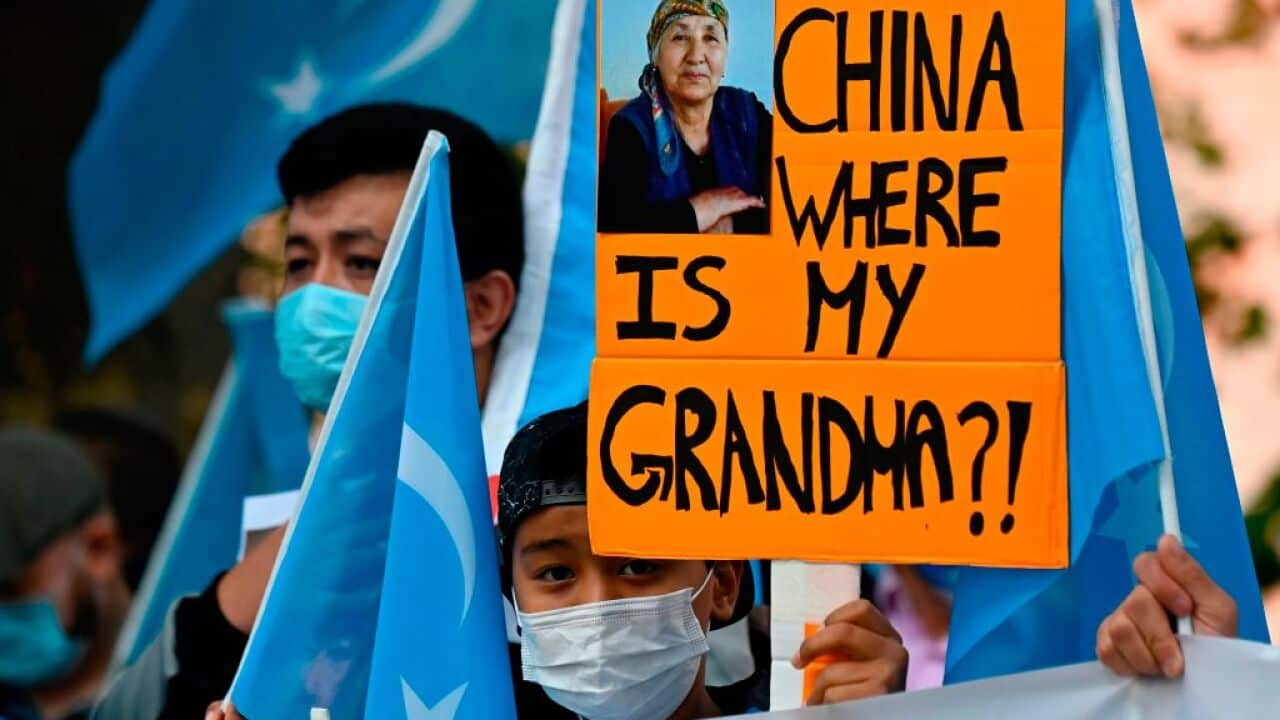Key Points
- China is using sophisticated ways to sanitise its image of troubled areas such as Xinjiang through social media.
- There are calls for social media companies to make changes so audiences can more easily identify propaganda.
China is using increasingly sophisticated ways to sanitise its image of through social media, (ASPI) says.
The study, which was funded by the US State Department, examined more than 1,700 videos on 18 YouTube accounts of popular Uyghur and other ethnic-minority influencers from Xinjiang, Tibet, and Inner Mongolia.
It found the Chinese government is using mostly young and female social media influencers to hit back at criticisms of China and create a picture of frontier regions that is starkly at odds with what's emerged internationally.
"This type of propaganda is way more insidious than the type of propaganda that we've been getting used to, because it is harder to detect, and it is more likely to have an impact on audiences that are not exposed to the general context about China," report co-author Daria Impiombato said.

A screenshot from a video of the ‘Story of Xinjiang by Guli’ channel featuring Uyghur woman Hurshidem Ablikim. Source: Supplied / ASPI
The ASPI report authors say social media influencers having a presence on YouTube, which is banned in China, is "highly unusual".
While they have not been in contact with the people featured in the videos, they say the accounts are linked to companies with ties to the Chinese government.
LISTEN TO

Uyghurs in Australia condemn Muslim countries' 'betrayal' at UN
SBS News
10/10/202206:10
Ms Impiombato is calling for social media companies to broaden their labelling of state-linked accounts.
"The concern is that these accounts are not classified as linked to the Chinese party state," she said.
"This type of content is then fed to audiences that lack the context to understand how this content is being created."
Dr Michael Clarke, an expert on the history and politics of Uyghurs in Xinjiang, said he's not surprised by the report's findings.
"A focus on lifestyle angles, so you know, cooking or cuisine or tourism or travel, it's a way of getting the state-sponsored message in via the backdoor (in a sneaky way) in some ways," he told SBS News.
Nurgul Sawut, executive chairperson of the Uyghur Freedom Forum, is urging people in Australia to use multiple sources of information to find out what is really happening.

Screenshot from a video featuring Uyghur woman Hurshidem Ablikim Source: Supplied / ASPI
SBS News has contacted the Chinese embassy in Canberra and YouTube for comment.











